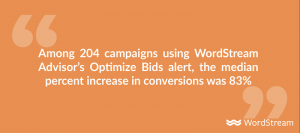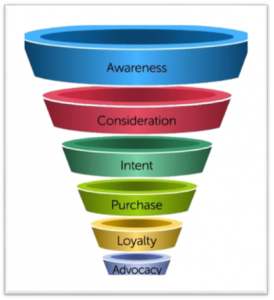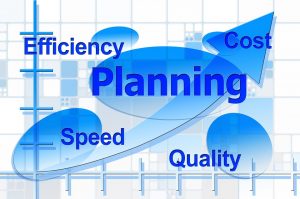April 29, 2024
How to build meaningful professional relationships
These steps can help you build genuine professional relationships that last.
Cultivating meaningful professional relationships can open doors to all kinds of exciting new career opportunities. However, it takes a certain set of skills to be able to build, and keep, these relationships. These skills are vital if you hope to grow your network and progress in your career.
Building meaningful professional relationships requires authenticity, communication, empathy, and consistency, among other qualities. You must also be able to engage with industry leaders and add genuine value through your interactions, and there are several key ways you can do this. Here’s how you can expand your professional network with purpose and intention:
Diversify your interactions
There are lots of different reasons to build strong professional relationships. From collaborating with your coworkers and fostering trust with clients to engaging with industry leaders, it’s important that you have a wide and varied network. But this requires you to communicate and interact with people in different ways; in some cases, this might occur online and other times in person.
In order to diversify your interactions with your network, you might attend events and meet with industry leaders. Or alternatively, you could take part in team-building activities in the office. Similarly, it is also important that you perfect your communication skills both on the phone, via email, and through other digital tools as a way of continuing to grow your network.
Communicate effectively and equitably
Communication is the cornerstone of any professional relationship. You must be able to communicate clearly and concisely to showcase your knowledge and get your point across, as well as build trust and respect with like-minded professionals. Of course, communication isn’t just about conversing. You also need to make sure you’re actively listening. Actively listening to others allows you to show a genuine interest and offer thoughtful responses.
You should also pay close attention to nonverbal cues: Be mindful of your own tone, body language, and etiquette in any professional setting. This helps you to convey professionalism and build mutually beneficial relationships.
Find common ground
As well as good communication, seeking common ground is often the basis of strong professional connections. By finding and sharing common interests, goals, and experiences with professionals in your field, you can strengthen your bonds and find talking points.
Finding things you share in common can be important for creating and maintaining professional relationships long into the future. And over time, you may need to continue to find new common ground if you want to keep your relationship healthy.
Add value through your interactions
Growing your network isn’t just about building relationships in the hopes of possibly finding a new job one day. You want these relationships to be genuine and mutually beneficial.
With that in mind, you need to think about the different ways you can add value to these relationships. For instance, you can add value to others by offering assistance or sharing your knowledge and expertise with other professionals. You should also be supportive of their goals and maybe even share your own connections and skills with them. Whatever you do, it’s important that you show what you can bring to the table.

Maintain professionalism at all times
While it’s important to be authentic and genuine in your interactions, it’s also important to maintain professionalism. After all, many of these conversations are going to be taking place in a work or professional setting.
In order to maintain professionalism, you need to respect boundaries, be mindful of any cultural or personal differences, and avoid gossip. Doing these things can help to build strong bonds and establish mutual respect without crossing any lines.
Stay connected
You might not always be working with the same people or on the same projects, but if you are working on building meaningful professional relationships, you don’t want to drift apart. You still want to remain in the forefront of their mind.
Therefore, keep in touch with your professional contacts regularly. This can be done through emails, phone calls, or in-person meetings. You can also use social media and relevant professional platforms like LinkedIn to engage with one another and share updates. Building relationships takes time and effort, so make sure to nurture them consistently and proactively.
Invest in yourself and your professional relationships
Finally, it’s crucial that you never stop investing in your own professional growth and development. You should proactively seek out opportunities for learning. This gives you the chance to network further. For example, you could attend workshops, take online courses, or find a mentor. These are all ways to invest in yourself and your professional relationships.
Investing in yourself also includes being open to receiving feedback from others and being willing to provide constructive feedback as well. This helps to foster growth and mutual respect.
By continuously improving your skillset and industry knowledge, you will position yourself as a valuable asset. You can then share your expertise with others as you build strong, meaningful relationships with them.
By following these steps, you can build genuine professional relationships and open yourself up to lots of exciting new opportunities. In fact, research suggests that 85% of jobs are filled via networking—as opposed to applying for a job cold. Building strong professional relationships can be the key to career success and achieving your professional goals.
ABOUT THE AUTHOR
(8)
Report Post






